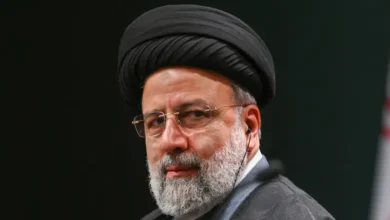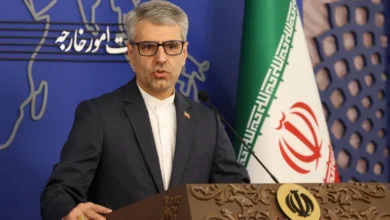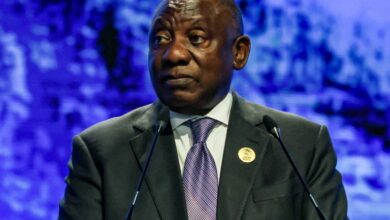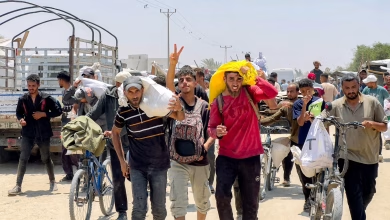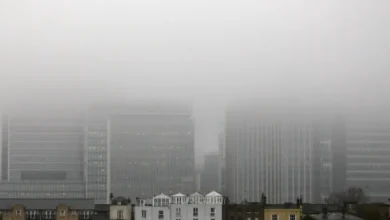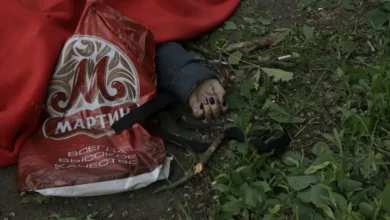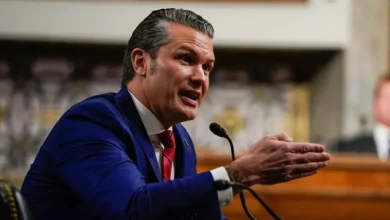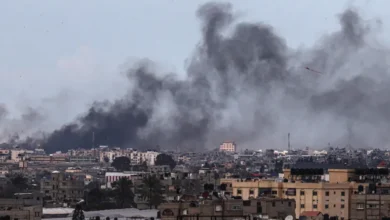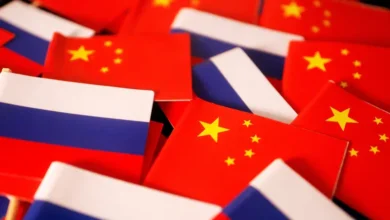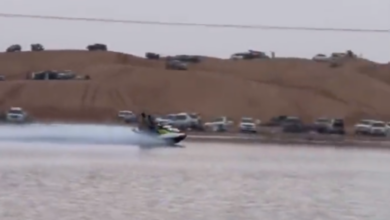What next for Iran as Khamenei loses his protégé?
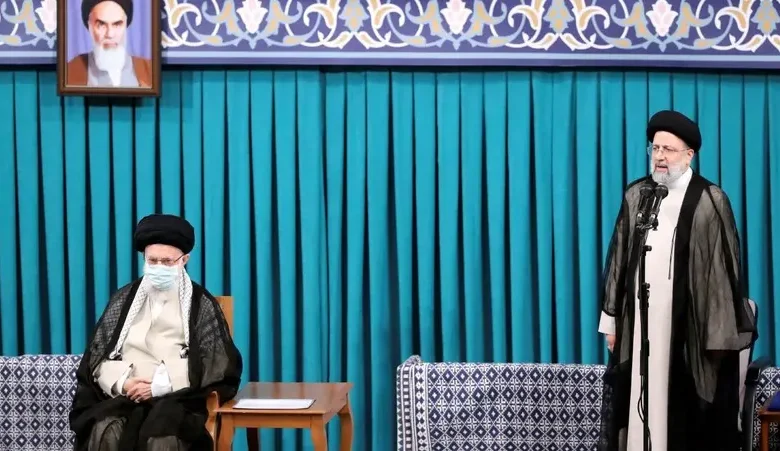
The sudden death of Iranian President Ebrahim Raisi, announced on Monday after his helicopter crashed the day before, sent shockwaves through Iran’s political landscape.
The 63-year-old Raisi had been in office since 2021, a period marred by anti-regime protests, an economic crisis driven by corruption and mismanagement and exacerbated by US sanctions, and tit-for-tat blows with arch-enemy Israel.
Out of the five presidents Iran has had since Ali Khamenei became supreme leader in 1989, Raisi was the closest to Khamenei.
Khamenei’s relationships with Iran’s presidents have generally been fraught. Some analysts view the president’s role in Iran as a shield for the supreme leader, who has the final say in all matters of state. When things go well, the supreme leader takes credit. But when they don’t, the president bears the brunt of the blame. This dynamic is often cited as the cause of poor ties between Khamenei and various Iranian presidents.
Raisi seemed to be an exception. He was a loyal follower who never challenged Khamenei, and the supreme leader often praised Raisi, possibly viewing him as a younger version of himself.
Before assuming the presidency, Raisi held another senior position as head of the judiciary, a role appointed by Khamenei. The close relationship between the two led to speculation that Raisi might be groomed to replace the 85-year-old Khamenei as supreme leader. Raisi’s unexpected death now raises numerous questions.
What will stay the same?
Several things will remain unchanged by Raisi’s death. In Iran, the supreme leader, rather than the president, has the final say on all state matters, including foreign policy and the nuclear program. Therefore, Iran will continue its hostility toward the United States and Israel, support proxy militant groups across the Middle East, and maintain its nuclear policy.

Sensitive domestic policies, such as the mandatory hijab law, are also ultimately determined by the supreme leader. Consequently, Raisi’s death is not expected to lead to major changes in the Islamic Republic’s overall policies.
“Iran’s foreign policy won’t change; the president doesn’t have much sway on security issues, and Raisi was particularly passive on such matters, deferring in all things to Khamenei and the Islamic Revolutionary Guard Corps (IRGC),” Eurasia Group analyst Gregory Brew wrote on X.
Hamidreza Azizi, a visiting fellow at the German Institute for International and Security Affairs (SWP), agreed, noting that strategic decisions are set by the supreme leader and the IRGC, not the president. “Expect continued rigidity in US relations and regional policies,” Azizi said in a post on X.
The challenges ahead
One significant challenge ahead is that Iran, per its constitution, must organize presidential elections within 50 days in order to elect a new president.
“Mobilizing voters within 50 days poses a significant challenge,” SWP’s Azizi wrote on X, noting that turnout in Tehran for the recent parliamentary election was as low as 8 percent.
Earlier this year, Iran held elections for parliament and the Assembly of Experts, a clerical body responsible for choosing the supreme leader. The parliamentary election, according to authorities, had a turnout of 41 percent, a record low since the 1979 Islamic Revolution.
Analysts attribute the low turnout in recent Iranian elections to domestic discontent stemming from economic hardships and political and social repression.
In the 2021 presidential election, which Raisi won, turnout was 48.8 percent, a record low for a presidential election in the Islamic Republic.
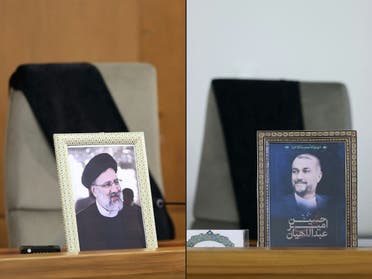
One factor contributing to the low turnout in the 2021 election was the disqualification of any candidates who could have posed a challenge to Raisi by the Guardian Council, an election watchdog whose members are either directly or indirectly selected by the supreme leader.
Analysts believe this was an effort by Khamenei to ensure Raisi’s presidency as part of wider efforts to “purify” the system and prepare for succession.
The regime has traditionally relied on voter turnout to demonstrate its legitimacy. However, as Khamenei approaches the end of his life, he may be less concerned with turnout and more focused on ensuring that all branches of government are dominated by individuals ideologically aligned with him to ensure a smooth transition after his death. This may explain the Guardian Council’s aggressive disqualification of candidates in recent elections, which has contributed to low voter turnout.
Azizi said that the regime was unlikely to relax candidate restrictions to boost turnout in the upcoming presidential election. “With supreme leader succession looming … expect a tightly controlled election.”
Succession
In recent years, two primary figures have emerged as rumored potential successors to Khamenei: Raisi and Mojtaba Khamenei, the influential son of the current supreme leader. With Raisi no longer in contention, attention turns to Mojtaba. Some analysts, however, expressed skepticism about the likelihood of him assuming the role of the next supreme leader.
“Mojtaba has no public profile in Iran and has never held high office,” Eurasia Group’s Brew said. “Moreover, his ascension would turn the supreme leader role into a hereditary office, which is anathema to the Islamic Republic’s political philosophy,” he added.
Raisi’s death “creates a succession crisis in Iran,” according to Karim Sadjadpour, a senior fellow at the Carnegie Endowment for International Peace.
“In Iran’s conspiratorial political culture, few will believe Raisi’s death was accidental,” Sadjadpour wrote on X.
If Mojtaba succeeds his father, this could lead to popular unrest, he argued. “Mojtaba’s lack of legitimacy and popularity means he’d be entirely reliant on the IRGC to maintain order. This could hasten the regime’s transition to military rule or its potential collapse.”
